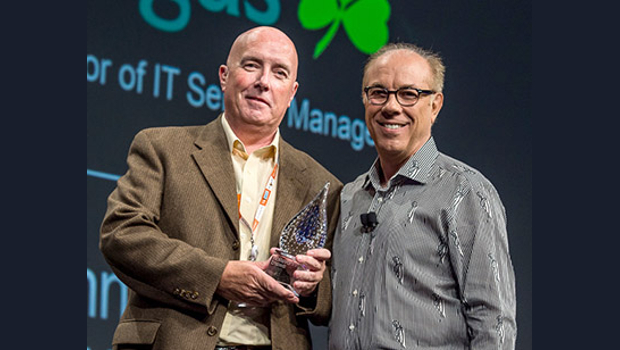Aer Lingus has won a major award at the Citrix Synergy conference in Orlando.
The Citrix Innovation Award went to Aer Lingus for its highly secure, industry-compliant enterprise mobility solution that provided “an unprecedented, consumer-like customer experience, while empowering employees to achieve greater productivity through a more flexible approach to work”.
Others on the shortlist included US energy company Exelon for an employee mobility solution; Australian engineering and construction services provider John Holland for an employee safety and risk management system; and baseball team Miami Marlins for a virtual desktop environment and migration project.
“The need for mobile access to apps and data anytime, from anywhere is changing the way business and IT leaders approach the delivery of information to their workforce, partners and customers,” said Geir Ramleth, chief strategy officer and senior vice president and general manager, Workspace Services, Citrix.
Aer Lingus developed its Smart Travel strategy in response to the severe economic pressures faced by the airline industry. With the aim to compete effectively against both low-cost and full-service providers, director of IT service management Derek Monahan recognised that the company’s IT infrastructure required extensive change to support the new focus. IT systems had developed in departmental siloes to the point where data from disparate sources was not easily accessible, with desktops running on the outdated Microsoft Windows XP operating system and, altogether, the business used 275 different legacy applications.
To enable employees to work more effectively and focus on service to customers, a more agile system was required. Monahan and his team developed two initial priorities. Firstly, they needed to update the company’s desktop estate from Windows XP to Windows 7. Secondly, they wanted to make employees more mobile, where the scope of mobility could range from enabling ground operations agents to work in different parts of Dublin airport, to giving pilots access to important information from anywhere in the world. Of critical importance within this was security and compliance with multiple aviation industry standards.
The team developed a solution built on NetScaler, XenDesktop and XenMobile, which provided a Windows 7 virtual desktop to 4,500 users across 1,400 PCs. With a single virtual desktop, migration was vastly simplified with no need for physical deployment of the new operating system onto every device. The virtual desktop approach has enabled the company to extend the life of existing PC hardware in many cases, and has reduced software support costs with centralised management. The solution has also centralised company data and apps in the data centre, thereby improving security, dissolving departmental siloes and making information more accessible to relevant employees.
At the same time, Aer Lingus deployed 2,500 iPads to various teams across the business, also allowing the introduction of a Bring Your Own Device (BYOD) policy for employees. The iPads use geo-fencing technology to change access levels based on the geographic location of the device.
Aer Lingus pilots now use 3G/4G enabled iPads to access flight plans and other sensitive data via XenMobile, helping create a secure, compliant, paperless cockpit. The impact on aircraft fuel costs, when taking into consideration the reduced take-off weight of an aircraft not carrying paper flight manuals over the course of a year, is significant.
With iPads, regardless of country or time-difference, pilots can quickly, easily and securely access the latest information relating to a flight. Pilots who hold a hybrid air crew/administration role can also access information and applications relating to their “desk job” from anywhere. The geo-fenced iPads manage what can and cannot be accessed via 3G/4G to reduce data costs. Flight data, for example, is accessible via 3G/4G wherever the flight crew may be in the world, but personal data such as Facebook or videos can only be accessed via Wi-Fi hotspots when outside of Ireland.
TechCentral Reporters






Subscribers 0
Fans 0
Followers 0
Followers